Meet the Rest of This Year’s Health Hero Challenge Semifinalists
Get to know who they are, what they do, and what they stand for.
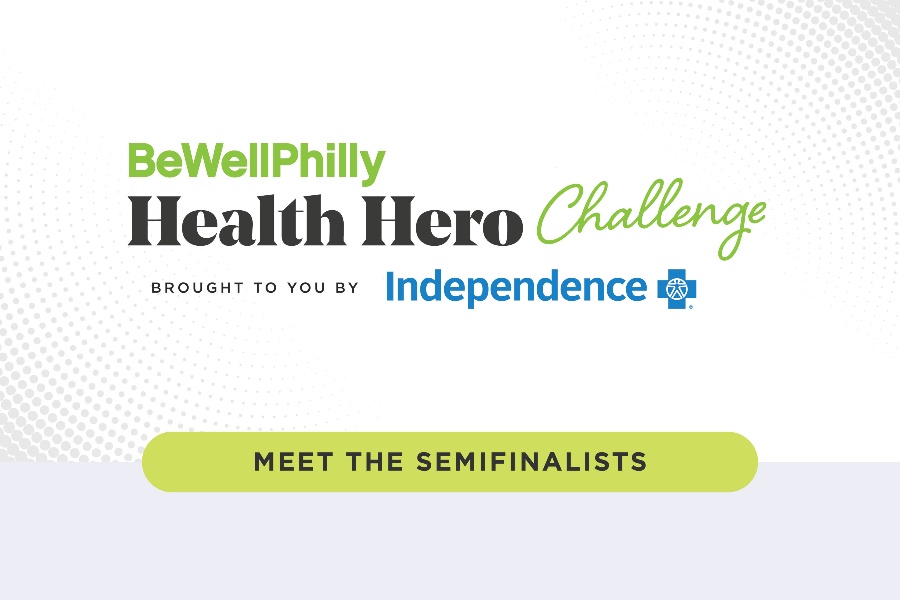
Last week, we introduced you to five of the 10 semifinalists for this year’s Be Well Philly Health Hero Challenge presented by Independence Blue Cross. Today, you get to meet the rest!
Remember, you can cast your vote once per day, every day, until September 29th for who you believe should be named the 2023 Health Hero and win a $15,000 donation to their selected charity. (The two runners-up will each win a $2,500 donation to their charities of choice!)
Without further ado, meet the second half of the semifinalists:
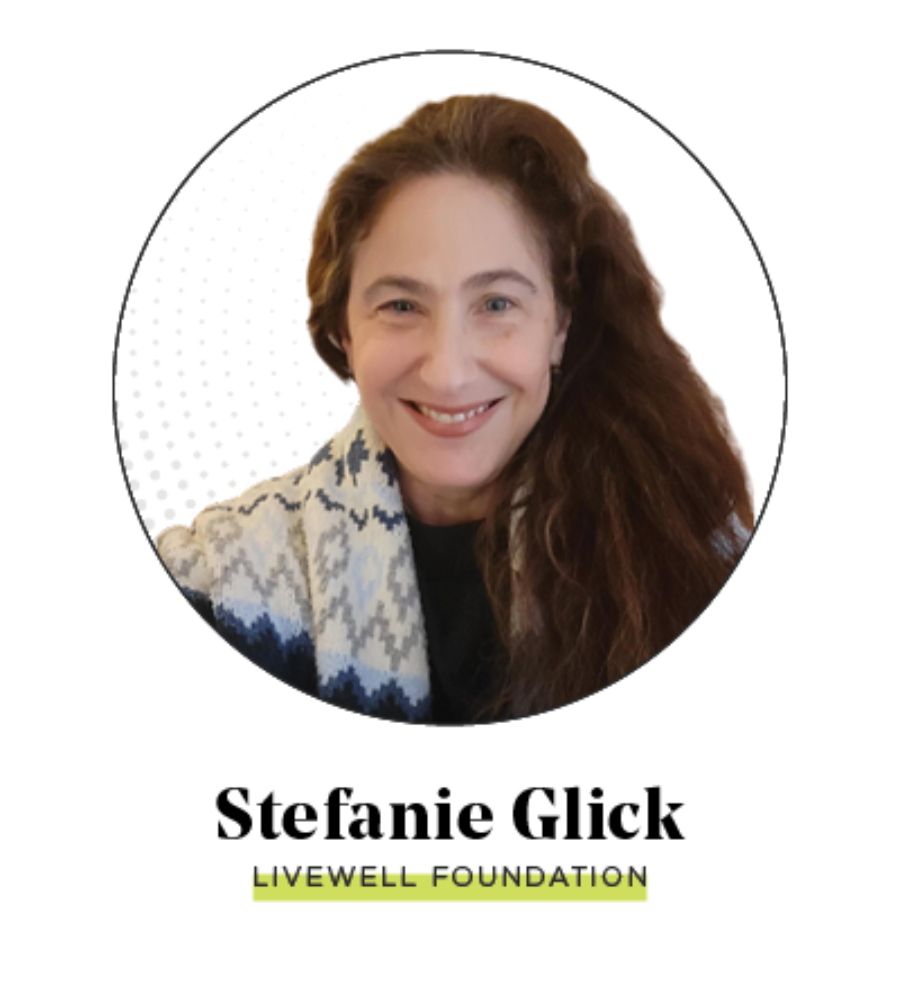
Who: Stefanie Glick, founder of LiveWell Foundation.
Nonprofit of choice: LiveWell Foundation, a nonprofit that offers free depression support to anyone who needs it. All virtual support groups — run by trained volunteers from diverse backgrounds and professions with their own lived experiences of depression and resilience — are free and easy to access: no insurance, diagnosis, or registration required.
What motivates you to improve the lives of your community members?
“Millions of Americans living with depression cannot access or afford the support they want and need, and untreated depression and suicide are devastating the lives of individuals, their families, and our communities. Motivated by the idea that all people deserve equal access to quality mental health services — regardless of income, background or location — I created a nonprofit that offers free depression support to anyone who needs it. Furthermore, my personal experience of living well with depression motivates me to spread the message that people can learn to manage depression and live meaningful, connected and productive lives.”
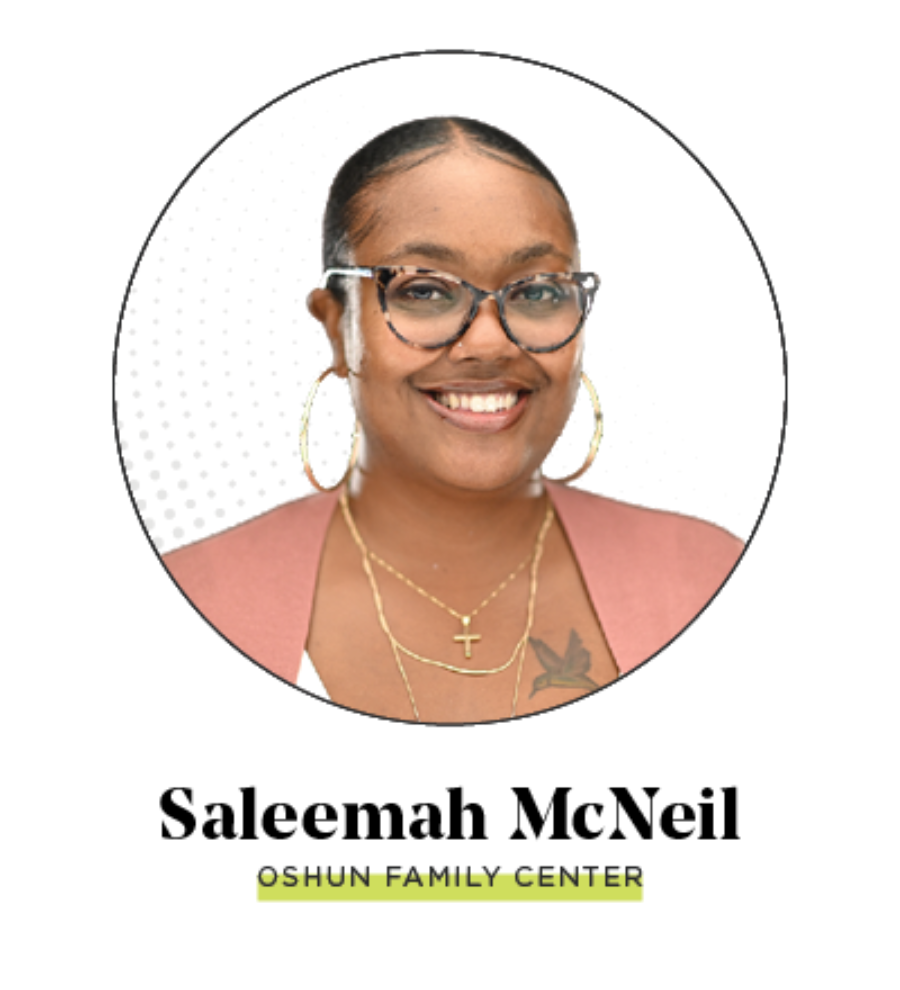
Who: Saleemah McNeil, founder and executive director of Oshun Family Center. McNeil is also a reproductive psychotherapist, certified lactation consultant, retired birth doula, maternal health researcher, and curator of Maternal Wellness Village, a Philly-based collective of Black birth workers that directly serve the community and provide expert content to boards, institutions and the community.
Nonprofit of choice: Oshun Family Center, which provides services that include (but are not limited to) doula support and connection, lactation support, maternal mental health services, childbirth education courses, and community engagement. According to McNeil, the mission is to “provide members of the Black community to racially concordant non-medical providers to promote healing and wellness throughout the diaspora. Black women die three to four times more than our white counterparts; therefore, this model of care has been designed with centering the experiences of the impacted community.” Additionally, Oshun Family Center has provided free and low-cost services since its inception in order to “remain connected to the vulnerable population of folks in the community being served.”
What motivates you to improve the lives of your community members?
“Bringing my son Earth-side exposed grave injustices within the health system that left me confused and struggling to put the pieces together as a new parent. Being a survivor of a traumatic birth experience has provided me with a unique perspective regarding the overall maternal wellness journey of Black birthing parents in the tri-state area. As a result, I embarked on a personal healing journey that led me to providing support to the birthing community with hopes of reducing Black maternal morbidity and eradicating Black maternal mortality through a comprehensive integrative wellness model. Maternal health is a public health problem; therefore, working to improve the experiences of Black birthing families will ultimately impact their overall quality of life.”
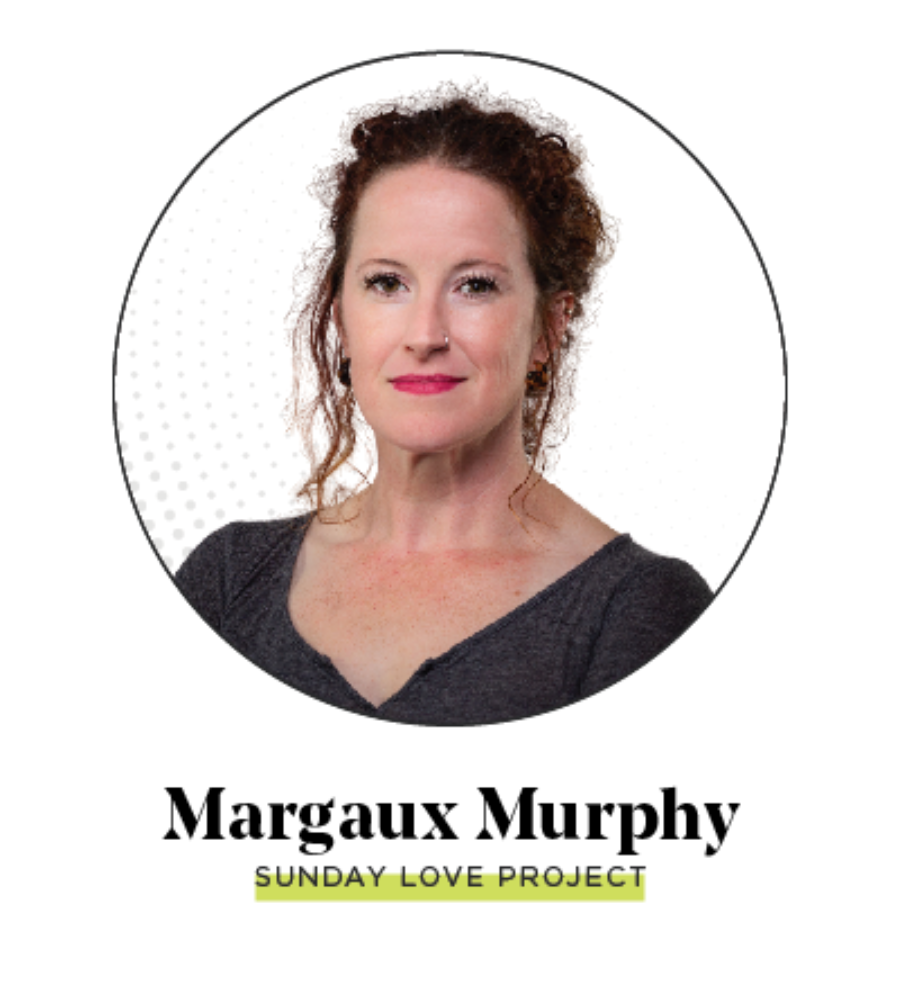
Who: Margaux Murphy, founder and executive director of Sunday Love Project. Murphy operates Greater Goods, a free grocery store that offers nutritious foods at no cost to anyone in need of food.
Nonprofit of choice: Sunday Love Project, whose mission is to provide food to those experiencing food insecurity. For the last seven years, Sunday Love Project has focused on those experiencing homelessness, but recently through its Kensington-based free grocery store Greater Goods, it has shifted gears to ensure parents are able to feed their children. Murphy says the group is “a liaison between a hungry, struggling mind and a focused, nourished soul.”
What motivates you to improve the lives of your community members?
“I am one of the community members. I treat others as I would like to be treated and I feel it is [people’s] job to help one another. Our hope is to introduce a resource center where we can invite other organizations to work together to tackle some of the struggles in the community such as job education, resume writing, identification, housing options, and medical assistance.”
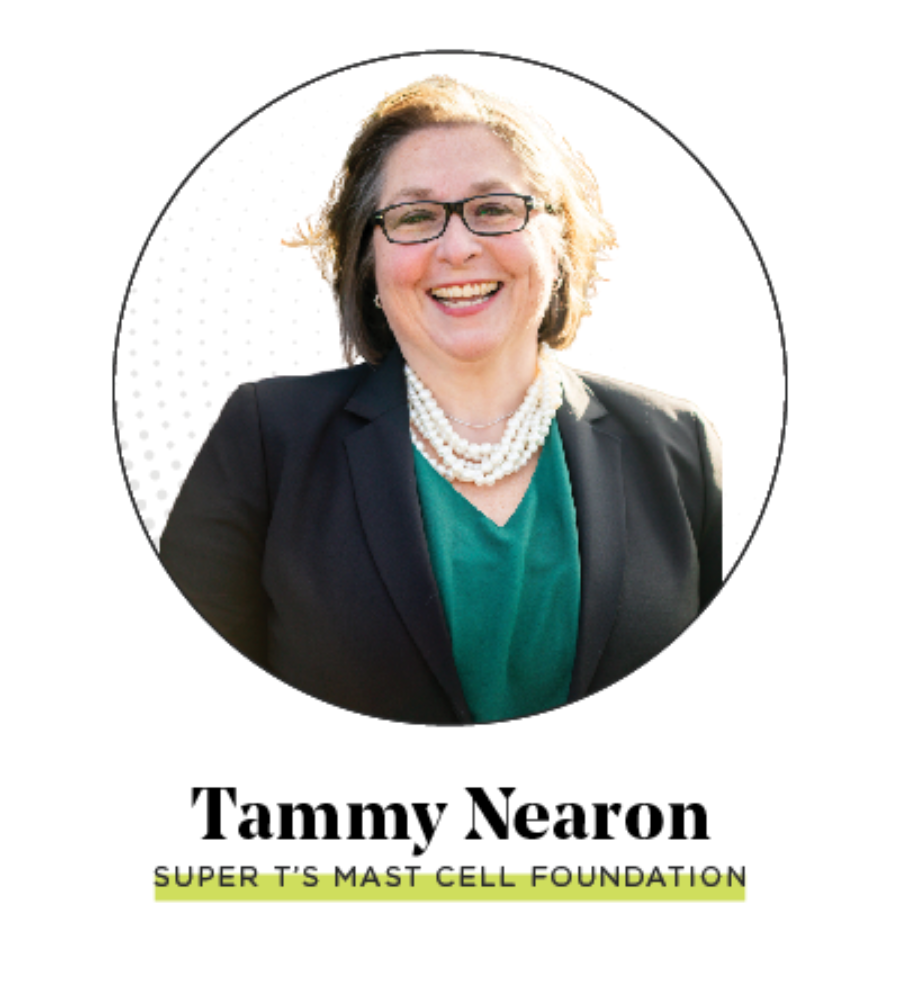
Who: Tammy Nearon, who, along with her daughter Taylor, created Super T’s Mast Cell Foundation. The organization provides financial support to patients, along with provider resource guides and forthcoming patient resource guides. Tammy’s daughter Taylor was diagnosed with mast cell disorder in July of 2015 and passed away in September of 2017. Tammy serves as the foundation’s president.
Nonprofit of choice: Super T’s Mast Cell Foundation, which is committed to providing financial and emotional support to patients living with mast cell diseases.
What motivates you to improve the lives of your community members?
“My motivation is my daughter, who as we were coming home from Minnesota where she received her own mast cell diagnosis, created Super T’s Mast Cell Foundation. Taylor did not want other patients and their parents to endure what she and I had. She wanted patients to have financial support, along with a spectrum of resources and emotional support when on their medical journey, and to know they were never alone. Taylor’s last request for me was to make Super T’s Mast Cell Foundation big. Over 10 years ago, we did not have an organization providing the spectrum of resources like Super T’s. As a mother, I promised her I would never let her down. She wanted the needs of this patient community acknowledged and met then, and this is what we continue doing today.”
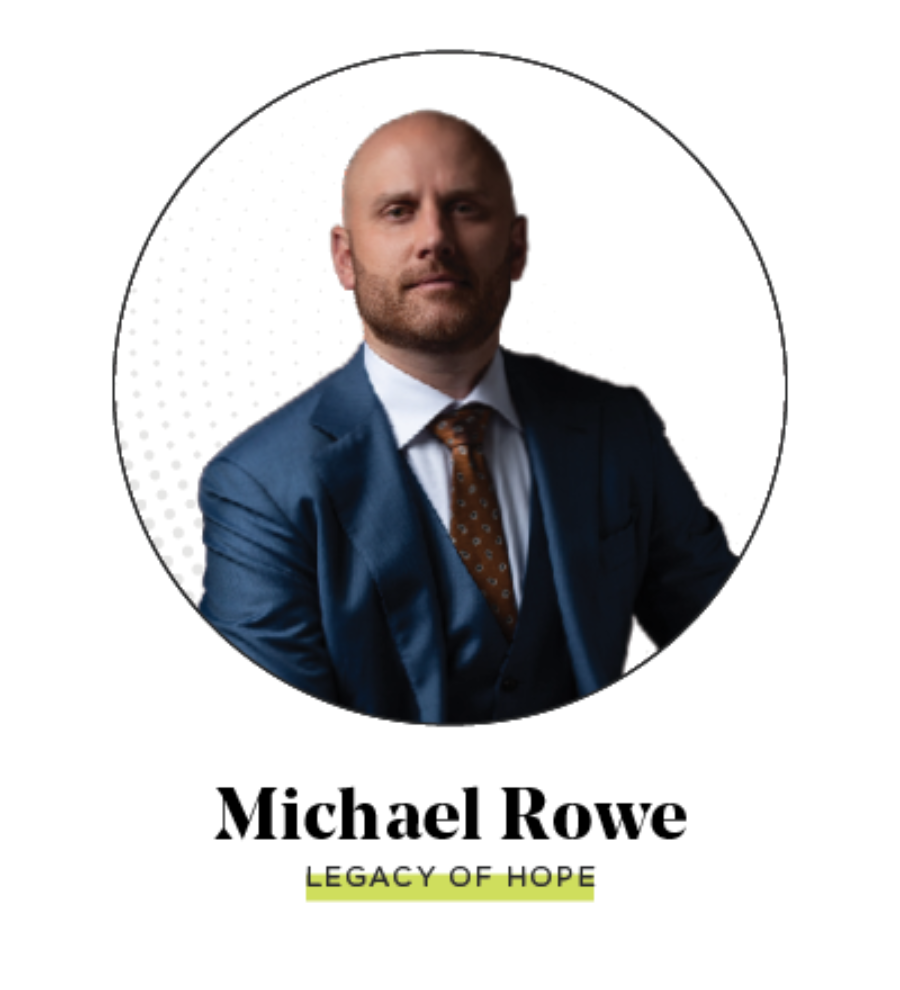
Who: Michael Rowe, founder and CEO of Legacy of Hope.
Nonprofit of choice: Often described as the “emergency medicine” of patient support, Legacy of Hope steps in when cancer patients and families have exhausted all other resources, and no longer have the capacity to provide themselves with basic necessities. Through a growing network of partnerships with hospitals, grocery stores, schools, construction companies, and the Philadelphia Police Department, Legacy of Hope has prevented hunger for over 6,000 underserved Philadelphia cancer patients and family members, according to Rowe. Legacy of Hope also runs a mentorship program for at-risk and underserved seventh- and eighth-grade students.
What motivates you to improve the lives of your community members?
“I’ve lived and worked in Philadelphia for nearly two decades, and have been given the opportunity to witness the incredible potential, resilience, solidarity, and culture of Philadelphia. As an EMT and trauma technician at Jefferson University Hospital, I worked with and witnessed not only the best Philadelphia has to offer, but the tremendous heartbreak of families unable to provide the most basic necessities for their loved ones. As a resident, I’ve experienced a culture I love, gained many friends I consider family, and as the leader of Legacy of Hope, I’ve been part of an organization which continues to positively impact and change the lives of thousands of patients, family members, students, and businesses.”
Vote once per day, every day, now through September 29th!


